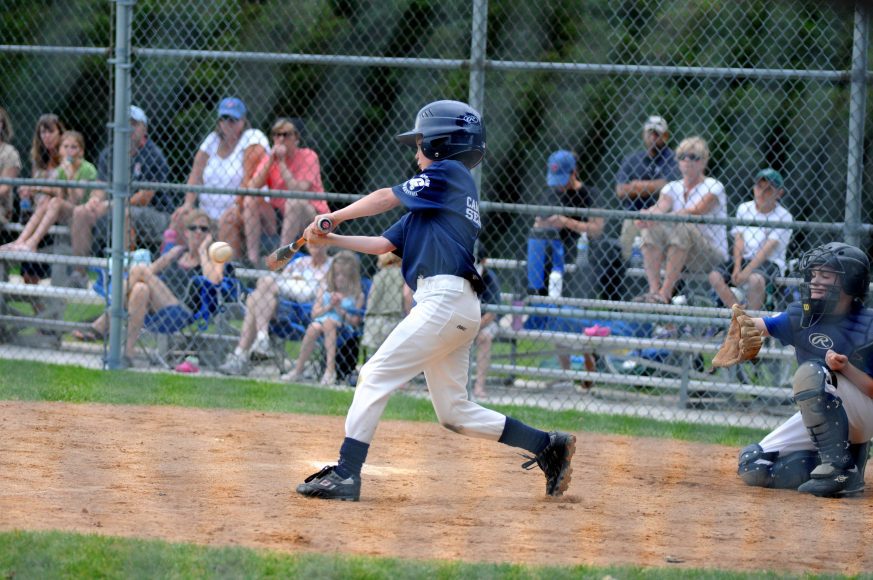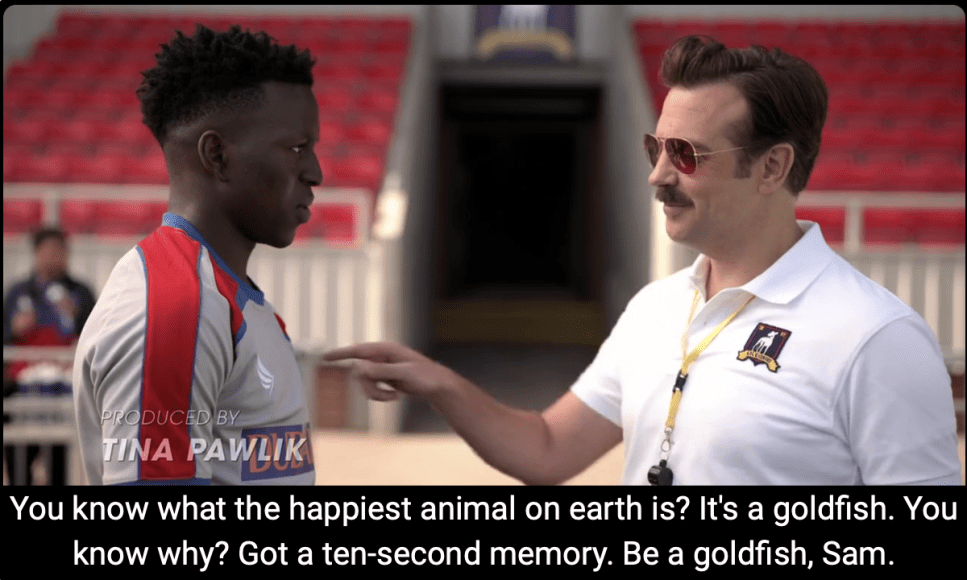I recently experienced that milestone that you read about in the parent blogs and occasionally see played out on the evening news: fan parents behaving badly at their kid’s game. The details of … How old are the kids? Which sport? Playoffs vs. regular-season? Rec league vs. competitive? … don’t really matter, do they?
It’s ugly when parents turn on the officials, the coaches, or each other. But it’s particularly gut-wrenching when the parent turns on their own kid. And not every offender is a monster! These are otherwise reasonable people who love their kids enough to invest the time and money into an activity that is designed to bring them JOY.

How did we get here? is not as important a question to ask as, How do we go back?!
I am no expert, but I recognize that more often than not, I’m channeling more of a Roy Kent vibe than Ted Lasso. So, here are some things I’ve tried that I *think* lead to more positive behavior on the sidelines and a better outcome for all involved.
Be their Parent, Not Their Coach
Don’t criticize your kids during the game! (You can’t recharacterize it as “coaching” unless you are, in fact, their coach). As their parent, you have one job, and one job only during the game: encourage them! You are allowed to bellow as many positive and encouraging remarks as you can think of. They may roll their eyes at you and tell you to stop embarrassing them, but that’s how you know you’re doing it right.
The only potential window for feedback is after the game. If you just can’t help yourself, your constructive criticism is limited to ONE THING and ONE THING ONLY!
There are only two questions that are relevant after a game: (1) Did you try your best? And (2) Did you have fun? If the answer to either of those is no, it’s not a window for more criticism, be curious and figure out what’s going on. That will lead to better results next time than another comment on form or strategy.
Humanize the Opponent
It’s one thing to cheer when your kid hits a home run or makes the penalty kick, but have you ever found yourself actively rooting against another child? Cheering when they miss a free throw or commit an error? How do the people who sit mere feet away from us in their camping chairs suddenly become our mortal enemies?
It is human instinct to group ourselves into “us” versus “them” – it’s called tribalism, and there are books devoted to the subject. The good news is that we can fight against our human nature and draw more people into the “us” category despite what colors we may be sporting at the game simply by rethinking our relationship to them.
- Focus less on your differences and more on what you have in common (This can look overly simple and obvious: we both have a second-grade boy who plays baseball.)
- Cheer for the other team! Okay, if that feels like a bridge too far, try acknowledging a good play when you see one, regardless of whose kid made it. And do it out loud. If other people hear it, it may encourage them to do the same.
- Mix up your seating arrangement. Sometimes you can’t avoid the designated “home” and “away” seating, but it’s harder to think of your opponents as enemies when you’re in closer proximity to each other.
- Strike up a conversation (and no, arguing about the referee doesn’t count!). Some of them may prove themselves to be jerks, but more times than not, you may actually find that they are normal, everyday people who are just happy to be watching their kid do their thing. Which is exactly what you’re doing, right???
Maintain a Big Picture Perspective
Mistakes and losses can feel so horrible in the moment, but maintaining perspective is a life skill that you should not only be using as an adult but teaching your kid, as well. Here are some easy questions to help you find the proper perspective in the face of disappointment (bonus points for asking/answering them out loud in front of your kid!):
- Will this matter in five minutes?
- Will this matter in an hour?
- Will this matter tomorrow?
- Will this matter in a month?
- Will this matter next year?
Less than 1% of our US population goes on to play professional sports (and way less than that ever become a well-known or successful player). So odds are, the answer to most of these will always be a resounding “nope.” Hopefully the exercise will prove to you that while a mistake may make the difference in a particular game, its effects likely won’t carry over any further.

So, the next time you find yourself on the sidelines watching your kid, fight those negative urges, and remember that it’s just a game, they’re just kids, and it’s supposed to be fun. Insert your favorite Ted Lasso-ism here (the goldfish one is hard to beat!).










